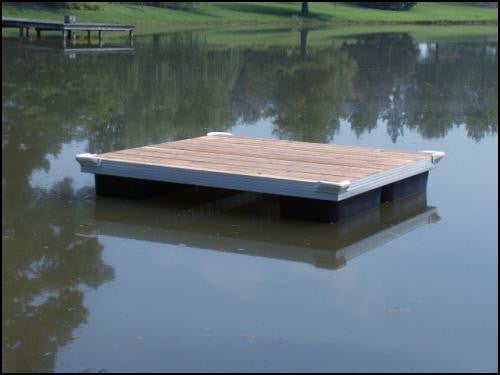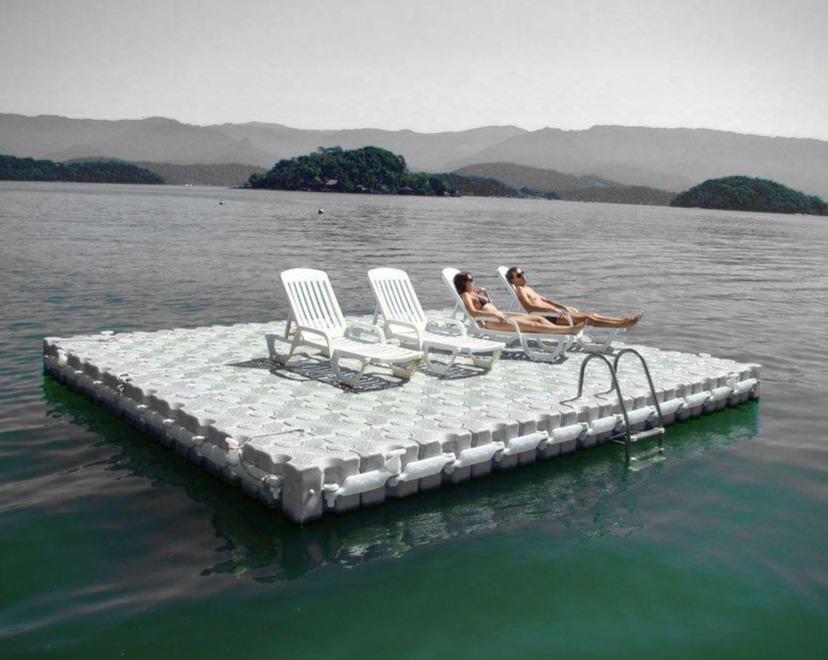Exactly how to Select the Right Floating Dock Builder for Your Custom Dock Requirements
Exactly how to Select the Right Floating Dock Builder for Your Custom Dock Requirements
Blog Article
The Ultimate Guide to Choosing the most effective Floating Docks
Picking the ideal floating dock calls for an extensive understanding of different aspects that affect both efficiency and longevity. Aspects such as dock types, products, and necessary features considerably impact your decision-making procedure. Moreover, considerations around setup and budget can additionally make complex the choice. By analyzing these aspects systematically, one can ensure an investment that not only fulfills prompt requirements yet likewise improves total property worth. As we discover these important elements, it ends up being clear that the right choices can result in a functional and long lasting option tailored to your particular requirements.
Understanding Floating Dock Types
When picking a floating dock, it is necessary to comprehend the various kinds readily available, as each serves distinct objectives and applications. Floating docks largely come under three groups: modular, stationary, and pontoon docks.
Modular docks are composed of specific sections that can be conveniently assembled or reconfigured, making them optimal for changing water degrees and diverse usages, such as industrial procedures or recreational activities. Their adaptability allows for customization based upon particular needs.

Pontoon docks are identified by their resilient framework, frequently made up of numerous pontoons that offer security and assistance. They are specifically fit for bigger vessels and are generally utilized in marinas or for waterside properties. Recognizing these types help in choosing one of the most ideal floating dock to satisfy certain needs, ensuring ideal performance and safety and security.
Key Products for Resilience
Picking the ideal products for floating docks considerably impacts their durability and longevity. The most typical products consist of timber, plastic, metal, and composite materials, each offering unique benefits and restrictions.
Wood, commonly favored for its visual appeal, needs routine upkeep to endure dampness and degeneration. Pressure-treated lumber can boost resistance to rot, yet it may still be prone to bugs and weathering.

Plastic docks, made from high-density polyethylene (HDPE), are immune to corrosion, UV radiation, and impact, making them a prominent selection for coastal settings. Their lightweight nature also promotes simple installment and moving.
Metal docks, typically built from light weight aluminum or galvanized steel, offer remarkable stamina and longevity. They are immune to deterioration, especially when dealt with, but may need extra insulation to stop heat build-up in hot environments.
Composite materials, combining wood fibers and plastics, deliver the advantages of both timber and plastic, standing up to dampness and fading while needing very little upkeep. - floating dock services
Ultimately, the selection of materials need to straighten with environmental problems, meant use, and maintenance choices to guarantee the floating dock continues to be functional and cosmetically pleasing over time.
Important Functions to Consider
While the choice of products is critical, thinking about necessary features for floating docks is similarly vital to make certain optimum performance and individual contentment. One crucial attribute to evaluate is the dock's buoyancy capability, which establishes exactly how much weight it can sustain without submerging. floating dock company. This is essential for accommodating watercrafts, personal watercraft, and even leisure activities
Furthermore, portability is a considerable consideration. Depending on your requirements, you might want a dock that is simple to carry and take apart, especially if you plan to transfer it seasonally. Stability is one more important feature; a properly designed floating dock should lessen activity triggered by wind and water currents, offering a secure platform for users.
Security attributes, such as non-slip surfaces and rounded edges, are also essential to protect view website against crashes, specifically in damp conditions. In addition, take into consideration the availability of devices, such as cleats, bumpers, and ladders, which can improve the functionality of your dock.
Installation and Maintenance Tips
Establishing and keeping a floating dock requires cautious preparation and interest to detail to ensure its durability and optimal efficiency. Begin by choosing a proper place that minimizes direct exposure to solid currents and waves, which can create wear and tear. Make certain that the water depth suffices for the dock's height which it is secured safely to stop movement.
During installation, follow the maker's guidelines carefully, as incorrect setting up can jeopardize stability. Usage premium materials resistant to deterioration, such as aluminum or treated timber, to boost sturdiness. Frequently evaluate all parts, consisting of drifts, connectors, and securing systems, for indications of damage or wear.
If your dock utilizes flotation protection gadgets, ensure they stay free and undamaged from leaks. By sticking to these setup and maintenance ideas, you can take pleasure in a useful and reputable floating dock for years to come.
Budgeting for Your Dock
Budgeting for your dock is a crucial action that can dramatically impact your total fulfillment floating dock company and investment in a waterfront residential property. Developing a clear spending plan aids you navigate the various choices readily available and ensures you make informed decisions that straighten with your financial capacities.
Begin by identifying the size and layout of the dock you need, as these aspects will considerably affect the price. Floating docks can differ substantially in rate, depending on materials, buoyancy, and functions like devices and ramps. Research study various producers and vendors to contrast rates and understand the market value.
Along with initial expenses, consider ongoing costs such as upkeep, insurance policy, and prospective fixings. Assign funds for these persisting prices to stay clear of shocks down the line. It's also sensible to spending plan for any essential permits or assessments, which might be required by local regulations.
Finally, maintain in mind the prospective roi. A tactical dock can improve your residential property's worth and charm, offering a favorable financial impact in the long-term. By budgeting properly, you can make certain that your dock satisfies your requirements without compromising your financial security.
Final Thought
In conclusion, choosing the optimal floating dock demands a complete examination of various aspects, consisting of dock kinds, materials, necessary features, and setup procedures. Cautious consideration of budgetary restraints will certainly even more guarantee a sound financial investment.

While the choice of products is important, thinking about crucial features for floating docks is just as vital to ensure optimal efficiency and user satisfaction.Setting up and maintaining a drifting dock calls for cautious planning and interest to detail to ensure its long life and optimal performance. Floating docks can differ substantially in rate, web link depending on materials, buoyancy, and functions like ramps and devices.In verdict, picking the suitable floating dock demands a thorough analysis of different variables, consisting of dock kinds, materials, necessary features, and installment processes.
Report this page